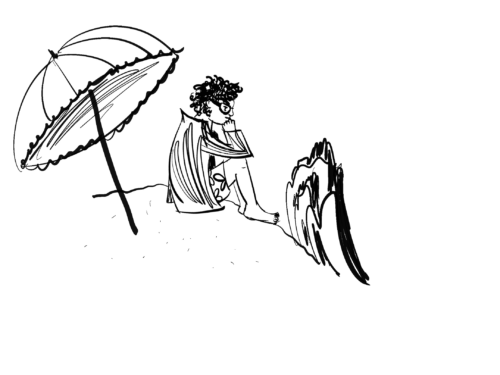Spring Break has come to an end. As we resume our final stretch of classes, we often disregard how much changes within the one-week University-wide break. As the campus quiets down and lecture halls empty, students attempt to immediately disconnect from the academic stresses of college and “forget about” their professors and classes. But Harvard’s Spring Break impacts them, too. Oftentimes, break heavily affects educators across disciplines in regard to their curriculum, academic, and personal development.
Professors had mixed reactions when asked about how student performance and engagement leading up to and after Spring Break changes. Professor Elliot Turley, who teaches the Expository Writing 20 class, Laughing Matters, explained that “the last class before Spring Break I anticipate being a less productive class, and I’m aware that that is going to be the case. But, I don’t think I do too much differently pre or post-Spring Break.”
Sina Saleh, a Ph.D. student and Math 1A Head Teaching Fellow, found that following the Spring Break period, “[he] noticed maybe a couple of students were not as active as they used to be. Maybe they just forgot how it worked because they were away for one week. But then they get it (the structure of the class) again, [and] they catch up after a few classes. So maybe in that respect, it could be a little disruptive.”
Despite these potential learning disruptions or issues with limited focus, the break does prove beneficial for students and faculty alike, who rely on it as an opportunity to catch up on their own research. “One week did help me, too, because I was a little behind on my own research, because teaching is also a lot. It takes a lot of time to prepare for classes and answer questions, and you’re getting involved in a lot of different things. So it’s also a good time off for me to spend some time on my own research and have meetings with my advisor and get back on track with my own research,” stated Saleh. Turley echoed this notion, conveying that “it was definitely useful for me to get research done or to go to a conference.”
When asked about how the break alleviated student burnout, Saleh mentioned, “[it’s great that] you can go back to your own city you come from, you can visit family and visit your friends. I think that’s a great thing to do during the break… It could be a good change for you just to have that opportunity to do that during the week, so I think it could be really good for your mental health.” Similarly, Turley noted, “My kind of guess would be that it is really helpful that students can come back refreshed from it.” He added that students themselves can truly discern the personal and professional benefits of the Spring Break period.
While some could assume that a concern amongst faculty members is that Spring Break disrupts the flow of the course curriculum, Turley noted that the mid-semester break falls ideally within the academic calendar. “My impulse is [that] halfway through the semester is kind of the right time. I find Thanksgiving Break incredibly disruptive. In that, there’s kind of this week that we almost lose the whole week, and then we come back, and it’s just one or two more lessons. That to me is definitively worse than the middle of the semester.”
As Turley teaches mainly first-years, he explained that “scheduling classes the day of Housing Day just seems like a recipe to create impossible situations. I don’t begrudge students wanting to have fun and celebrate… I don’t begrudge teachers [for] wanting to teach. It feels like right now, [administration] is kind of trying to have it both ways.”
As far as assignments throughout the break, each educator viewed the period differently in hopes of taking advantage of the time. Turley expressed that “[he] personally [tries] to set it up so that there’s no more work happening than there would be between any other classes,” keeping the amount of work manageable and not assigning any more than usual due to the extended time away. Saleh conversely stated, “I personally think it’s good not to have assignments during the break; I think it’s a great time to catch up on the things you’re behind on.”
Saleh also discussed the potential benefits of veering away from traditional assignments, explaining how “giving students more resources to ask questions during the break would be much better than giving them new assignments because…it’s better to make sure that they understand the things that were already taught in the course, not to learn new things.”
During this Spring Break, Turley spent his time acing “the third round” at bar trivia, as he enjoys “travel[ing] back to Texas” when he can. Saleh spent his time collaborating with a group of friends from Harvard. “We had a jam session at the Memorial Hall. They have a proper jamming room, which is really nice. So we went there. We spent some time coming up with music, which was really nice.”
These insights on Spring Break provide students with a humanizing and unique understanding of how campus life functions even while we are gone. A monumental effort is employed by the academic community as they attempt to carefully balance maintaining course momentum and allowing students to enjoy the time off during Spring Break.
Vincent Honrubia ’27 (vincenthonrubia@college.harvard.edu) writes News for the Independent.

